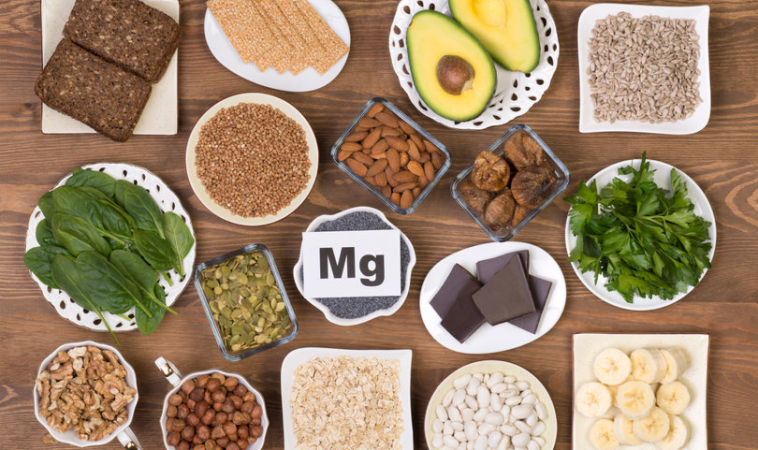What if there was a nutrient that could support better sleep, sustained energy all day, a balanced response to stress, athletic recovery, healthy blood pressure and blood sugar levels, bone health, hormonal balance, and keep you regular?
As a critical component in over 300 biochemical functions in your body, magnesium is arguably the most important mineral to overall health. Neurosurgeon and pain medicine pioneer, Norman Shealy MD, Ph.D, says, “Every known illness is associated with a magnesium deficiency and it’s the missing cure to many diseases.”
Symptoms of Magnesium deficiency tend not to be specific, so this condition, although it is common, is often overlooked. Some of the usual symptoms include fatigue, insomnia, pain, anxiety, high blood pressure, migraines, numbness and tingling, muscle spasm and cramping. Lack of magnesium is also a common cause of constipation or slow-moving bowels. Getting a typical blood test will tell you how much magnesium is in your bloodstream, but because 99% of magnesium is in other tissues, this number has very little correlation with total body magnesium levels.
Certain conditions and medications can make it harder to maintain adequate levels of magnesium: Crohn’s disease, celiac, alcohol abuse, type 2 diabetes, chronic diarrhea, diuretics (like Hydrochlorothiazide/HCTZ or Furosemide), proton pump inhibitors (like omeprazole), and certain antibiotics (i.e. gentamicin). Soil depletion, GMOs and an overall lack of minerals in agriculture have set us up with a food supply that is inherently deficient. Couple that with digestive disorders and leaky gut, it’s no wonder so many folks are suffering.
There are a myriad of ways to get more magnesium into your system. As always, eating a variety of foods that are rich in magnesium provides the most bioavailable forms of the mineral. Pumpkin seeds, almonds, mung beans, cashews, flax seeds, black beans, edamame, quinoa, and spinach rank amongst the highest levels. Dark chocolate (with more than 70% cacao content) is another great source of magnesium (possibly explaining part of the reason women crave chocolate around their period – it is a muscle relaxer so it can decrease cramping). Another source many don’t often think of is mineral water, which is also calorie and allergen free and ensures hydration as well.
If you’re interested in supplementation, there are a lot of options on the market and they are all a bit different from each other. Depending on how the magnesium is “chelated” (or attached to another molecule), its properties can vary. Magnesium citrate is a common form of supplementation and is bonded with citric acid. This form has a stronger laxative effect and is best for constipation. Magnesium glycinate is partnered with glycine, an amino acid that calms the nervous system and helps to gently detoxify the liver. This is my favorite type of magnesium because it promotes balanced mood, better sleep, and doesn’t have as much of a laxative effect. Magnesium threonate is a newer form of supplementation that is supposed to cross the mitochondrial membrane, which gives it a higher level of absorbability. There are also topical options like gels from sea salt or magnesium chloride oil which might be better options for people with digestive issues or more effective for muscle tightness, pain and cramping.
Regardless of how you increase magnesium in your body, it is an essential nutrient that is a worth a closer look.

Nicola Dehlinger, ND, graduated from SCNM. Dr. Nicola sees clients from around the world in her naturopathic medical practice, Pura Vida Natural Healthcare, in Durango, CO. She is an expert in the treatment of anxiety, depression, and insomnia. She is able to minimize supplements and medications as her patients become empowered to heal themselves. In addition to seeing clients, Dr. Nicola leads group and private retreats. She teaches a variety of online and in-person classes. In her free time, you can find Dr. Nicola in the mountains or the kitchen, enjoying time with her husband, son, and dogs. Website: www.puravidahealthcare.com

















